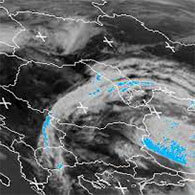KPMG Study Tax measures to cope with the financial crisis
KPMG Study: Tax measures to cope with the financial crisis 2855
Marime text
2855
Marime text

 KPMG has published
a study of the steps taken by governments in 47 countries including Romania to
respond to the global economic downturn with taxation measures. The study is
divided into chapters for each country, each presenting a succinct summary of
the main changes.
KPMG has published
a study of the steps taken by governments in 47 countries including Romania to
respond to the global economic downturn with taxation measures. The study is
divided into chapters for each country, each presenting a succinct summary of
the main changes.
As Valentin Tic, Tax Partner at KPMG in Romania points out; "governments worldwide have been faced with a dilemma when deciding how to respond to the downturn. The recession has meant less revenue coming in through taxation, leading to shortfalls in the budget. So some countries have reacted by raising taxes. However, increasing the tax burden can also have negative effects- deepening the recession by reducing individuals' disposable income, or companies' budgets for investment. So in other countries, governments have reduced taxes to stimulate recovery. For example, in the UK, VAT was temporarily reduced from 17.5% to 15% between 1 December 2008 and 1 January 2010."
Niculae Done, Senior Tax Partner at KPMG in Romania adds; "the Romanian government has taken a number of steps to try to close the gap in budget revenue, such as ending deductibility on fuel for VAT and personal income tax, as well as imposing a presumptive tax on businesses and a minimum tax on small enterprises. But the budget deficit remains high at around 7.5%. Unfortunately, some quite aggressive measures have also been taken, such as in practice delaying VAT refunds, and these have not been helpful to the business climate. In 2009, there was political instability as well as Presidential elections and elections for the European Parliament. These factors have acted as a disincentive to tough decision making by government. Hopefully 2010 will be a more stable year politically, with a new government now in place, and no elections scheduled."
As Mark Gibbins, Tax Partner and Head of KPMG in Romania's Tax Department points out; "there has been much speculation about a possible rise in VAT or in the flat rate for corporate and personal income tax. Such steps would be counter-productive as they would slow down the recovery and in turn have a negative impact on budget revenue. Instead, the government should concentrate on more efficient revenue collection to tackle the underground economy, which by most estimates remains substantial. For example, tax audits should be more carefully focused on companies and individuals which present a high risk of tax evasion, rather than being carried out randomly as at present."
Gibbins concludes; "the KPMG study provides a broad overview of recent changes in taxation in a wide range of countries around the world. It should make interesting reading for businesses, analysts and all those concerned with the state of the global economy."
* END *
About KPMG:
KPMG is a global network of professional firms providing Audit, Tax and Advisory services. We operate in 146 countries and have 140,000 people working in member firms around the world. The independent member firms of the KPMG network are affiliated with KPMG International Cooperative ("KPMG International"), a Swiss entity. Each KPMG firm is a legally distinct and separate entity and describes itself as such.
KPMG in Romania operates from six offices located in Bucharest, Cluj-Napoca, Constanta, Iasi, Timisoara and Chişinău. We currently employ more than 600 partners and staff, both Romanian and expatriates.
© 2010 KPMG Romania S.R.L., a Romanian limited liability company and a member firm of the KPMG network of independent member firms affiliated with KPMG International Cooperative ("KPMG International"), a Swiss entity. All rights reserved. Printed in Romania.
Urmareste-ne pe Grupul de Whatsapp
 Fondul Documentar Dobrogea de ieri și de azi
Fondul Documentar Dobrogea de ieri și de azi


















_thumb2.jpg)














